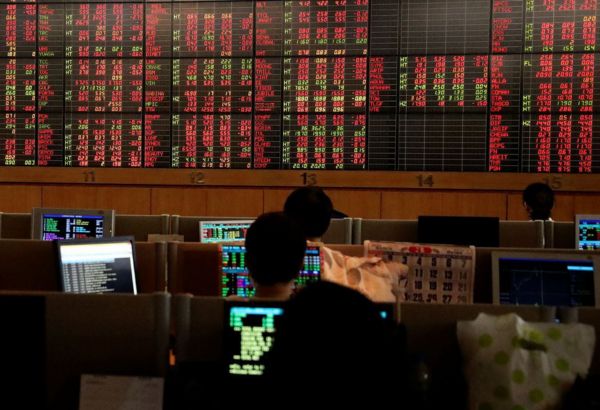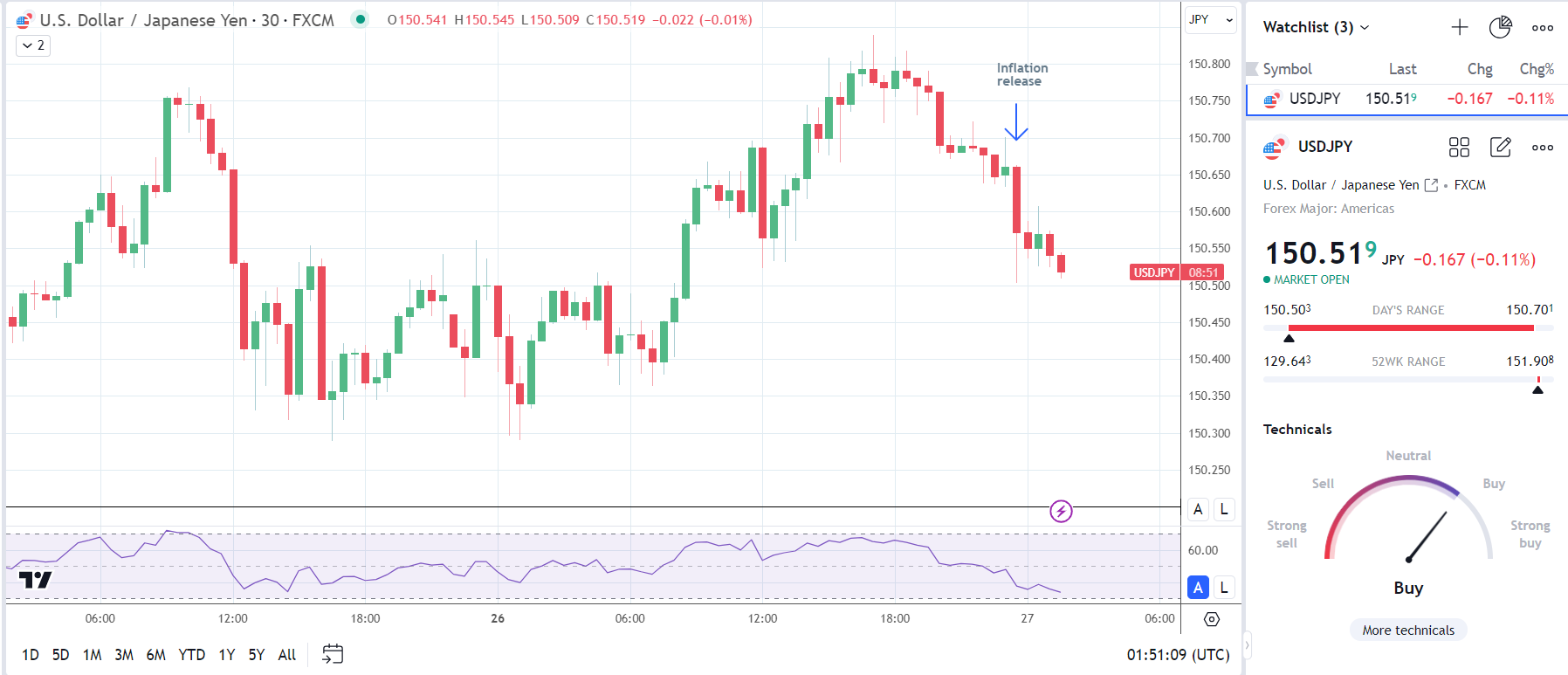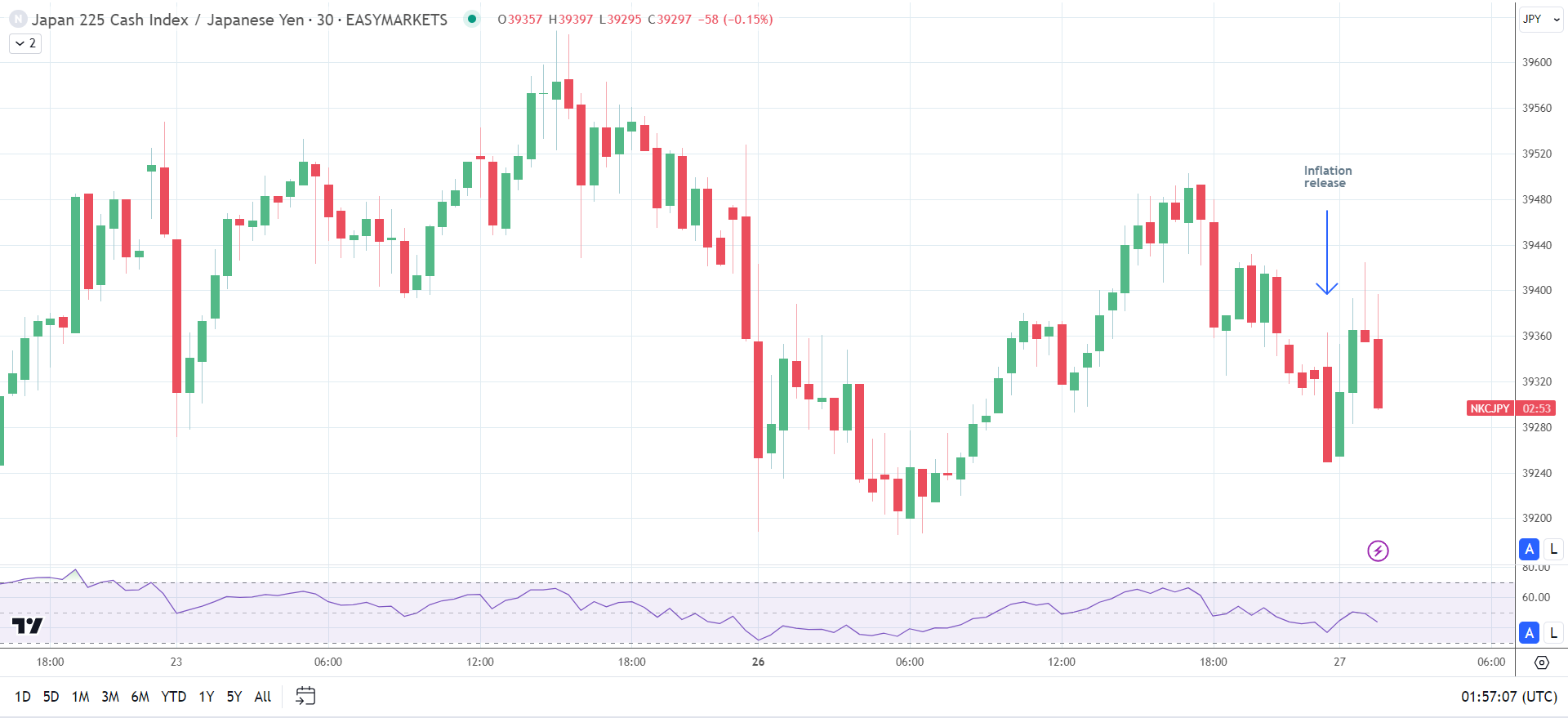
Recent inflation data from Japan may have given the Bank of Japan (BoJ) the green light to consider moving away from negative interest rates. In January, the annual inflation rate dipped from 2.6% to 2.2%, slightly below economists' forecast of 2.1%. Additionally, the core inflation rate decreased from 2.3% to 2.0%, with economists anticipating a drop to 1.8%.
These inflation figures hold significance. While falling below the BoJ's 2% target could alleviate pressure on the bank to abandon negative rates, the core inflation rate of 2% might incentivize a shift away from negative rates as early as April.
The USD/JPY currency pair responded to the inflation report, hitting a session low of 150.503. On Tuesday, it showed a decrease of 0.11% to 150.519.

USDJPY 30 Minute Chart 270224
The release of inflation figures briefly pushed the Nikkei into negative territory. However, it rebounded despite growing speculation about the BoJ's potential shift from negative rates. Reassurances from the BoJ that policy would remain accommodative even after exiting negative rates supported the Nikkei at its current levels. On Tuesday, the Nikkei rose by 0.35% to 39,372.
Softbank (9984) led the gains, rallying by 2.08%. Demand for chip stocks remained strong, with Arm Holdings (ARM) making significant moves in the AI sector, fueling a 9.64% rally on Monday, February 26.
However, it was a mixed session for broader Asian equity markets. The Hang Seng Index and the ASX 200 experienced declines of 0.44% and 0.04%, respectively.

Nikkei 30 Minute Chart 270224
Mining stocks weighed on the ASX 200 due to the downward trend in iron ore prices. BHP Group Ltd (BHP) and Rio Tinto Ltd. (RIO) fell by 0.36% and 0.98%, respectively, while Fortescue Metals Group Ltd. (FMG) dropped by 0.92%.
Hopes for an extended rally in the Year of the Dragon remained subdued. Concerns about the Chinese economy affected the Hang Seng Index, with calls increasing for a substantial fiscal stimulus package ahead of lawmakers' meeting in Beijing next week. The absence of such a package might leave the Chinese economy struggling, influencing central banks to postpone interest rate cuts.

Subscribe to our daily newsletter and get the best forex trading information and markets status updates
Trade within minutes!
Comment (0)